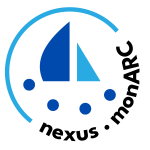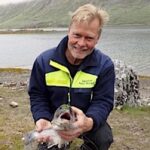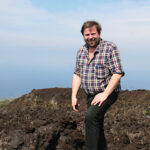UGOT – The University of Gothenburg was ranked number 45 in the world by Times Higher Education university impact ranking in 2020, with respect to relevance for the UN Sustainable Development Goals. Prof. Martin Hassellöv leads the research group on marine environmental nanochemistry, studying marine pollution in its solid form, from nanometer scale to the ecosystem level. The marine environment is subjected today to multiple stressors, including ocean acidification, climate change, overfishing and pollution. The pollutants may consist of molecular contaminants, but also in solid forms. The solid forms of marine pollution includes both objects that are very real, as the massive plastic pollution of the oceans, including the smallest particles; the so-called micro-plastic, but also synthetic nanoparticles. Furthermore, Prof. Erik Strurkell has extensive experience in studying volcanism and volcanic plumbing systems in Iceland and has been leading efforts to engage local business owners and public in the process of scientific monitoring and results dissemination. Bengt Liljebladh has a PhD in Oceanography and is princ. Research engineer at the Dep. Of Earth Sciences. He has been involved in the construction of a marine infrastructure for coastal and fjord dynamics with a specialty in acoustic current meters. He has participated in many different field projects. In recent years he has been involved in the build up of a Swedish terrestrial infrastructure including GHG- fluxes, lake observatories, lake mesocosms and remote sensing using drones. Member of the Swedish Mareculture Centre Swemarc. UGOT will bring expertise on monitoring particle pollution (e.g. projects NANOISLAND, EMERGE).
UGOT researchers are active in developing novel correlative microscopy platforms and workflows including light, electron, confocal laser and infrared microscope probing of the same particles. Dedicated tools for nanomaterials of both inorganic and polymer origins are also developed and applied for environmental forensic studies and will be shared with NKUA researchers.




